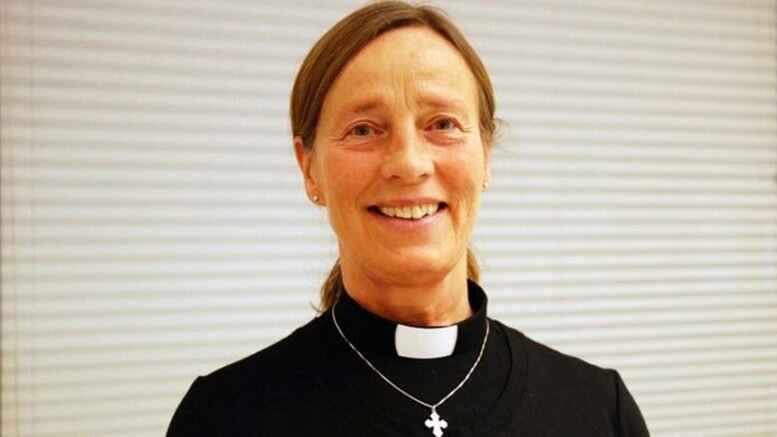Anne Lise Ådnøy is elected as Bishop in Stavanger
The Norwegian Church Council has appointed Dean Anne Lise Ådnøy as the next Bishop in the Stavanger Diocese.
The 61-years-old Dean was one of three candidates who passed the first hurdle – a vote in the ecclesiastical bodies. She takes over as Bishop after Iver Braut. He resigned due to health problems in October.
«I am glad for the trust that the Church Council has given me by appointing me as a Bishop. I want to work for a more open church, centred around Jesus Christus,» Ådnøy writes in a press release.
“We have elected a Bishop with good, bridge-building, abilities, who is known for her eloquent preaches, the Leading Church Councilor, Kristin Gunleiksrud Raaum,” states.
Progressive vs Stalwart
Ådnøy got the position even though it was the Karmøy Dean, Helge Gaard, who got the most votes in the local vote. He was also the prefered candidate of the Norwegian Bishops.
Ådnøy and Gaard have, among other issues, different views on gay marriage. Gaard has made it clear that he does not devote same-sex couples.
Facts about the Church of Norway (Wikipedia)
Until 1845, the Church of Norway was the only legal religious organisation in Norway. It was not possible to end the membership of it.
“Dissenterloven” (Lov angaaende dem, der bekjende sig til den christelige Religion, uden at være medlemmer af Statskirken) was an act approved by the Parliament on July 16th, 1845, which allowed the establishment of alternative religious bodies.
This act was in 1969 replaced by the Law on belief societies, this, that and sundry (Lov om trudomssamfunn og ymist anna).
The constitutional Leader of the church was the King of Norway, who is obliged to profess himself as a Lutheran, until 2012.
After the constitutional amendment of May 21st, 2012, the Church of Norway is self-governed with regard to doctrinal issues and appointment of clergy.
The Church of Norway was subject to legislation, including its budgets, passed by the Parliament.
Its central administrative functions were carried out by the Royal Ministry of Government Administration, Reform and Church Affairs, until 2017.
Bishops and priests were Civil Servants, even after the 2012 constitutional reform.
Each Parish has an autonomous administration.
The state itself does not administer church buildings; buildings and adjacent land instead belong to the parish as an independent, public, institution.
The then Minister of Church Affairs, Trond Giske (Labour), was responsible for proposing the 2012 amendments, maintaining that “the State Church is retained”.
An act approved in 2016 set the Church of Norway up as an independent legal entity, effective as of January 1st, 2017. This leaves Iran as the sole country to retain such a binding.
© NTB Scanpix / #Norway Today






